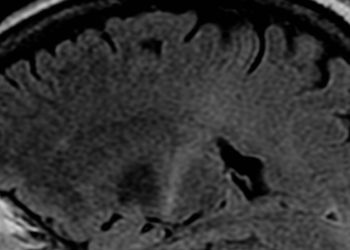Patient Basics: Amyotrophic Lateral Sclerosis (ALS)
Originally published by Harvard Health.
What Is It?
Amyotrophic lateral sclerosis (ALS) causes a slow degeneration of nerve cells that control muscle movements. As a result, people with ALS gradually lose the ability to control their muscles. Fortunately, their capacity to think and remember things usually is not affected. ALS is also known as Lou Gehrig’s disease, after the famous U.S. baseball player who developed the disease.
The cause of ALS remains unknown. ALS generally strikes patients between the ages of 50 and 70. It affects men slightly more often than women. Some cases appear to be inherited. Certain genes may increase the risk of developing the illness.
Symptoms
Symptoms of ALS include:
- Muscle weakness and wasting (atrophy) in the:
- Arms and legs
- Torso
- Breathing muscles
- Throat and tongue
Weakness usually begins in the arms and legs. It worsens slowly over time.
- Muscle twitching, cramps, stiffness, and muscles that tire easily
- Slowed speech that becomes progressively harder to understand
- Difficulty breathing and swallowing; choking
- Weight loss because of:
- Muscle breakdown
- Poor nutrition caused by problems swallowing
- Sudden involuntary bursts of laughter or crying
- Changes in the way the person walks. Eventually, loss of ability to walk.
Diagnosis
Your doctor will ask about your medical history, and do a physical exam to look for the following signs:
- A loss of muscle bulk, and muscle weakness, particularly in the arms and legs
- Muscle twitching
- The arms or legs resist being moved by someone else.
- Abnormal tendon reflexes
- The Babinski sign. The toe moves upward when the sole of the foot is stroked.
- Difficulty taking a deep breath in and out
- Facial weakness
- Slurred speech
Your doctor will also check to see whether the following have been affected:
- Your sense of pain, touch, heat
- Eye movement
- Higher thought processes, such as:
- Perception
- Reasoning
- Judgment
- Imagination
There is no single test result that confirms an ALS diagnosis. Your doctor will diagnose ALS based on the examination, and by excluding other causes of your symptoms.
Electromyography (EMG) tests how electrical signals travel down your nerves to your muscles. This test can be abnormal in ALS.
Because other neurological conditions besides ALS can cause similar symptoms, other types of studies sometimes are done to try to diagnose these other neurological conditions:
- Blood tests
- Spinal fluid analysis
- Magnetic resonance imaging (MRI) scans
A neurologist is usually the physician who diagnoses ALS. A neurologist is an expert in diseases of the nervous system. If your doctor suspects ALS, he or she should refer you to a neurologist for evaluation.
Expected Duration
People with ALS live an average of three to five years after the symptoms begin. Most die from an inability to breathe or from lung infections. Lung infections tend to occur when breathing is impaired for long periods of time.
Prevention
There is no way to prevent ALS.
Treatment
There is no cure for ALS.
Riluzole (Rilutek) is the only drug approved by the U.S. Food and Drug Administration (FDA) for ALS. It has been able to prolong survival in some people. New treatments are under investigation.
A number of medications may help to manage symptoms of ALS. For example, pain medications and muscle relaxants may help with painful muscle spasticity.
Mechanical devices are available to make self-care easier for people with ALS. Examples include dressing aids and special utensils for eating. A cane or walker may help patients who have difficulty walking.
Patients should consider the option of using a mechanical respirator if they become unable to breathe on their own. Artificial ventilation can help some patients survive for years. But many patients choose not to be kept alive in a state of total paralysis.
Patients with ALS should discuss this issue with their doctors early in the illness. That way, decisions about emergency resuscitation can be made according to the patient’s wishes in the event of life-threatening breathing problems.
Emotional support is crucial. Much of this support can be provided by the patient’s friends and family. But a qualified counselor or psychotherapist also can be a valuable asset.
When To Call a Professional
See your doctor as soon as possible if you develop unexplained muscle weakness or difficulty controlling your movements. This is especially important if speaking, breathing or swallowing is affected.
Prognosis
ALS eventually affects muscles governing breathing, swallowing and other crucial body functions. As a result, ALS ultimately leads to death.
Active research continues into the causes and treatment of ALS.
Additional Info
The ALS Association
27001 Agoura Road
Suite 150
Calabasas Hills, CA 91301-5104
Phone: 818-880-9007
Fax: 818-880-9006
http://www.alsa.org/
ALS Society of Canada
265 Yorkland Blvd.
Suite 300
Toronto, Ontario M2J 1S5
Toll-Free: 1-800-267-4257
Fax: 416-497-1256
http://www.als.ca/alsboard.shtml
Multiple Sclerosis Foundation
6350 North Andrews Ave.
Fort Lauderdale, FL 33309-2130
Phone: 954-776-6805
Toll-Free: 1-800-225-6495
Fax: 954-938-8708
http://www.msfacts.org/









